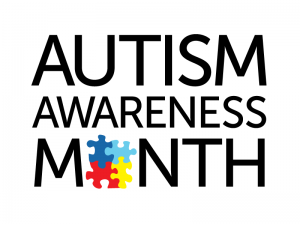
Visual deficiencies are predominant with children in the Autism Spectrum Disorder, but often go undiagnosed and untreated because the child can pass a 20/20 basic eye screening, which tests distance vision only. Autistic visual problems are primarily near-vision deficits, and these skills can only be properly examined in a complete developmental evaluation.
There are even documented cases – I have had several – in which autism was incorrectly diagnosed. Several vision problems CAN create autism-like symptoms. Upon proper diagnosis, the patients underwent vision therapy to retrain the brain and eyes to function optimally together. These children have now gone on to lead normal lives without autism.
Even if the autism diagnosis is correct, vision therapy can improve symptoms and encourage social and communicative skills. Autistic children commonly deal with these visual problems that we can help with:
- Lack of eye contact
- Wandering eyes
- Sensitivity to light
- Inability to focus on an object or obsessive focusing
- Poor hand-eye coordination and motor skills
- Difficulty maintaining attention
- Staring at spinning objects or light
- Scanning or looking to the side of an object
- Impulse control
- Poor depth perception
Autistic children also struggle with coordinating their central and peripheral vision, which can lead to difficulties in processing and understanding visual information. When visual processing is interrupted, the motor, cognitive, speech, and perceptual abilities can be affected. However, visual processing and comprehension are learned skills which can be improved with training. Therefore, even though many of an autistic person’s problems are with socialization and communication, the improvement of visual skills and understanding can help in those areas as well.
According to Dr. Temple Grandin in her book, Thinking in Pictures: My Life with Autism, “In many autistic children, the eye itself is normal but faulty wiring in the brain is causing the problem.” Our eyes take in information and transmit messages to the brain, which then has to make sense of this information and decide what to do with it. If these organs are not working together correctly, vision therapy can help “retrain” the brain to do so.
Strabismus and eye movement / teaming disorders are typical with autism, as well as various other visual/perception disorders. These disorders are not screened for at school or the pediatrician’s office. However, they can be improved through vision therapy with a developmental optometrist.
If you bring your autistic child to us, we will do a comprehensive evaluation to identify which visual problems he is suffering with. Your child would wear special lenses while asked to perform activities such as catching and throwing a ball, as we observe his reactions to moving or steady objects and various stimuli.
Once we have a diagnosis, we can adapt a vision therapy program to suit your child’s needs. Vision therapy can lessen many autistic visual symptoms, giving the child relief and freedom to live a more balanced life. Therapy would include games and activities using lenses, prisms, balls, and other objects to train the eyes to work more efficiently together. Colored lens therapy is also available to encourage the eyes to relax and work together properly, as well as performance lenses to optimize vision. Many sensory issues that are common with autistic patients can also be addressed.
Our goal with vision therapy would be to raise the quality of life for your child by improving:
- Eye contact
- Peripheral vision
- Focus and eye coordination for near-skills such as reading and schoolwork
- Motor skills for activities such as bicycle riding and sports
- Visual information processing for better comprehension of what is seen
- Organization and awareness of visual space and boundaries
- Reduce repetitive behavior associated with visual stimuli
Many autistic individuals have undergone vision therapy with successful results. You can read some of these testimonials online here.
If your child is autistic or exhibiting symptoms, please contact us for more information or to schedule an appointment. We can make a world of difference in his life and yours.